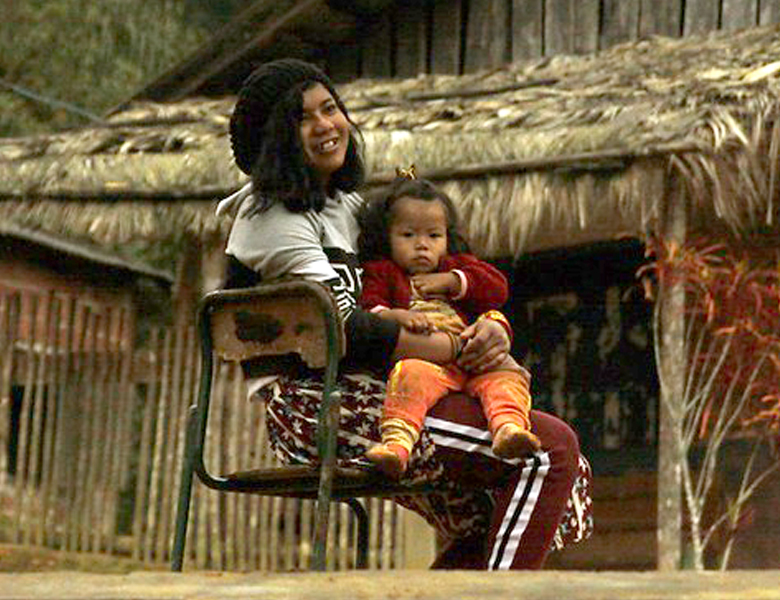
The Guarani are traditional peoples of the Atlantic Forest and live in villages scattered throughout southern Brazil. Centuries of colonization have resulted in the loss or degradation of much of their historic territory. Today, the Guarani are working to restore these lands, through planting and reforestation projects. This project with BGR partner Centro de Trabalho Indigenista (CTI) will work in the Guasu Guavira Indigenous Lands of western Paraná state, usin tested methods to improve the physical and mental health of community members.
In this project, an exchange of seeds and knowledge with other Guarani communities will strengthen agrobiodiversity; young people and women, together with the elders of the Guasu Guavirá and other regions of Brazil, will participate, the strengthening the relationships among people of the region and improving the health of their lands. The project will also support the direct cultivation of traditional and chemical-free species, thus increasing biodiversity in the territory and supporting the struggle for food autonomy. Finally, a workshop focused on the native Jate’i bee species will be held for the Guasu Guavira youth. The young people will learn traditional knowledge about the native bees and the uses of honey in the Guarani culture, combined with modern beekeeping practices already used by some communities in the territory.

The Guarani are traditional peoples of the Atlantic Forest and live in villages scattered throughout southern Brazil. Centuries of colonization have resulted in the loss or degradation of much of their historic territory. Today, the Guarani are working to restore these lands, through planting and reforestation projects. This project with BGR partner Centro de Trabalho Indigenista (CTI) will work in the Guasu Guavira Indigenous Lands of western Paraná state, usin tested methods to improve the physical and mental health of community members.
In this project, an exchange of seeds and knowledge with other Guarani communities will strengthen agrobiodiversity; young people and women, together with the elders of the Guasu Guavirá and other regions of Brazil, will participate, the strengthening the relationships among people of the region and improving the health of their lands. The project will also support the direct cultivation of traditional and chemical-free species, thus increasing biodiversity in the territory and supporting the struggle for food autonomy. Finally, a workshop focused on the native Jate’i bee species will be held for the Guasu Guavira youth. The young people will learn traditional knowledge about the native bees and the uses of honey in the Guarani culture, combined with modern beekeeping practices already used by some communities in the territory.




